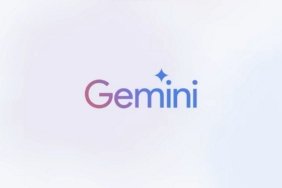Microsoft Corp. and OpenAI are currently probing potential unauthorized access to data generated by OpenAI’s technology, allegedly involving a group associated with the Chinese artificial intelligence startup DeepSeek, according to sources familiar with the situation.
In the fall, Microsoft security researchers noted suspicious activities from individuals believed to be linked to DeepSeek, who were reportedly extracting large volumes of data via OpenAI’s application programming interface (API). These sources, who requested anonymity due to the sensitive nature of the investigation, indicated that developers can purchase licenses to utilize the API in order to incorporate OpenAI’s proprietary AI models into their own applications.
As one of OpenAI’s principal investors and technology partners, Microsoft alerted the company to these concerns. The reported activity may breach OpenAI’s terms of service, and it is possible that the group undertook efforts to bypass the limitations imposed by OpenAI regarding data access, according to the individuals familiar with the matter.
Earlier this month, DeepSeek launched an open-source AI model dubbed R1, claiming it can replicate human reasoning. This development has sent shockwaves through a market primarily dominated by OpenAI and major US competitors such as Google and Meta Platforms Inc. DeepSeek asserted that R1 not only competes with but also surpasses top US products across various benchmarks, including mathematical reasoning and general knowledge, and was developed at a significantly lower cost. The repercussions of this potential competition led to technology stocks linked to AI, including Microsoft, Nvidia Corp., Oracle Corp., and Alphabet Inc., experiencing a sharp decline on Monday, collectively wiping out nearly $1 trillion in market capitalization.
OpenAI did not provide a comment when approached, and Microsoft declined to discuss the situation. Neither DeepSeek nor the hedge fund High-Flyer, which was instrumental in DeepSeek’s inception, responded to requests for comment via email.
David Sacks, who served as President Donald Trump’s artificial intelligence czar, remarked on Tuesday that there exists “substantial evidence” suggesting that DeepSeek relied on outputs from OpenAI’s models to develop its own technology. In a Fox News interview, Sacks explained a method called distillation, where one AI model leverages the outputs of another to enhance its capabilities.
Sacks stated, “There’s substantial evidence that what DeepSeek did here is they distilled knowledge out of OpenAI models, and I don’t think OpenAI is very happy about this,” although he did not provide specifics regarding the evidence.
In response to Sacks’ comments, OpenAI refrained from directly addressing the allegations concerning DeepSeek. An OpenAI spokesperson stated, “We know PRC-based companies — and others — are constantly trying to distill the models of leading US AI companies.” The spokesperson emphasized that OpenAI engages in protective measures to safeguard its intellectual property, including a rigorous process for determining which advanced capabilities to incorporate into released models, and underscored the importance of collaboration with the US government to protect these models from adversaries and competitors.
© 2025 Bloomberg L.P.
(This story has not been edited by NDTV staff and is auto-generated from a syndicated feed.)






